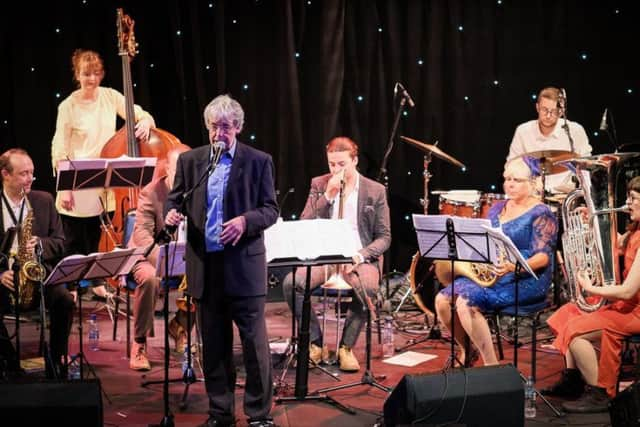Music reviews: Dave Holland, Zakir Hussain & Chris Potter | Birth of the Cool


Assembly Hall, Edinburgh ***** | Teviot Row, Edinburgh ****
Holland’s jaunty Lucky Seven set the benchmark high and suggested a well settled chemistry between the three. Potter shifted between the reedy calling of soprano sax and muscular but lyrical tenor, over the insistent thwack and thunder of Hussain’s drums, while Holland’s warm-toned bass embarked on meticulously articulated solos, sparred with the tablas or raced them in tightly cascading runs.
Advertisement
Hide AdThe gracefully floating melody of Mazad released a cheerful bass excursion before soprano sax returned with querulous rejoicing. Later, a torrent of konnakol vocables heralded Hussain’s explosive percussive fusillade, before they left us with a brief but beguiling encore of Bedouin Trail, a swaying processional that faded out still escorted by that big, congenial bass.


Tommy Smith’s solo acoustic set commanded attention right from the start, as he paced slowly through the audience and on to the stage, while pouring a stream of melody and free-form improvisation from his tenor sax, ranging through, among other things, Robert Burns’s Red, Red Rose and that ever-circling Sixties hit, Windmills of Your Mind, linked by improvisational crooning and fluttering, baying and stratospheric shrilling, to morph finally into richly lingering elaborations on yet another rose, Duke Ellington’s Single Petal.
This celebration of The Birth of the Cool, Miles Davis’s hugely influential nonet project, was recreated in the perversely sweltering Teviot Row hall. BOTC, of course, was far from “cool” in the sense of suggesting casual and dispassionate, but was a striking emergence of innovatively arranged and hugely influential music from the bebop crucible. Under musical director and enthusiastically animated conductor Richard Ingham, 70 years on from Davis’s band broadcasting from the Royal Roost club in New York, the nine-piece on stage were a mixture of seasoned Scots jazzers and younger players, with trumpeter Colin Steele channelling Miles, stylishly though not slavishly, Allon Beavoisin taking on Gerry Mulligan’s baritone sax role and Martin Kershaw playing alto in place of Lee Konitz. Other players included pianist Alan Benzie and trombonist Rory Ingham, plus bass, drums, French horn and tuba.
From the opening Boplicity, we were back in a distinctive and at the time groundbreaking sound world, with the catchy trumpet hook of Mulligan’s Venus de Milo, Beauvoisin’s baritone sax floating over the rich ensemble drift of Moon Dreams while Kershaw’s alto sustained that long, hanging note through languidly shifting harmonies. There was the jostling counterpoint of John Carisi’s classic Israel, while the beefy riffing of Godchild had baritone sax playing off tuba for a pleasing bass buzz.
All solos were concise and to the point, as all the BOTC numbers were relatively short, but, despite the nonet’s brief life, its music remains surprisingly timeless.
JIM GILCHRIST